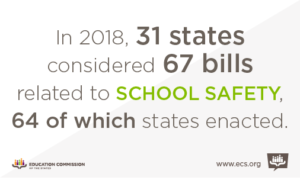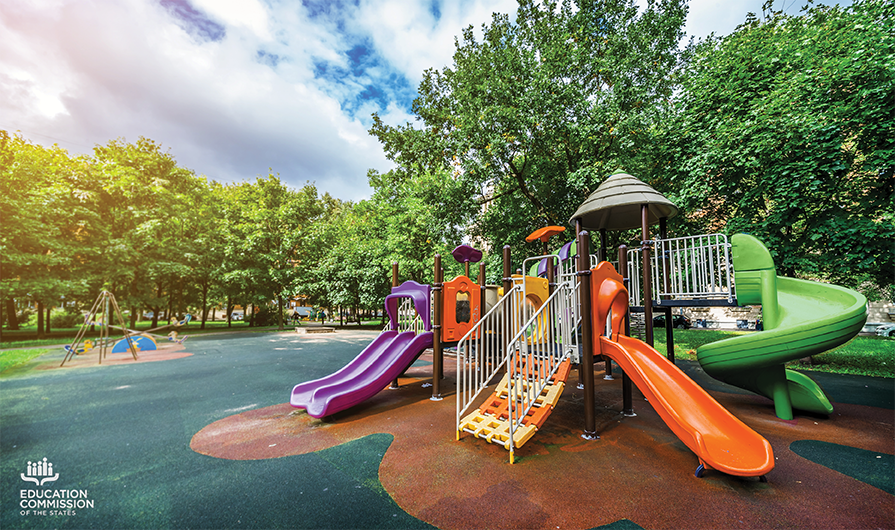In our recent post on school security efforts, we shared that many states are recommending school resource officers as one measure — among many — to improve safety on school campuses. In 2018, we tracked 67 pieces of state legislation through our State Education Policy Tracking resource related to school safety, including the establishment or development of school resource officer programs.
 School resource officers (SROs), who are members of law enforcement, are stationed at schools on a full- or part-time basis. Almost half of U.S. public schools now have at least a part-time school resource officer, according to the most recent data available, as state lawmakers look to respond to concerns about school safety. So what do SROs do, and how can states play a part? Let’s take a look.
School resource officers (SROs), who are members of law enforcement, are stationed at schools on a full- or part-time basis. Almost half of U.S. public schools now have at least a part-time school resource officer, according to the most recent data available, as state lawmakers look to respond to concerns about school safety. So what do SROs do, and how can states play a part? Let’s take a look.
What Do They Do?
The responsibilities of SROs vary from state to state, but their duties typically fall into the following categories: law enforcement officer, counselor and teacher. With such a wide range of roles, SROs become important for a variety of reasons — making sure the school is safe by checking locked doors and gates, listening to a student who is having a difficult day and teaching a class on self-defense or prevention, among others.
Who Employs Them?
SROs may be employed by the local law enforcement agency, the school district or a partnership between the two entities. Thus, the duties may differ significantly depending on the regulations of the agency and district or the memorandum of understanding that dictates expectations, primary responsibilities and supervision.
How Are They Trained?
Additionally, training requirements for school resource officers may vary, depending on the state. For example, Alabama does not have specific uniform standards for training, but SROs can take a detailed, 40-hour training through the National Association of School Resource Officers. However, California requires SROs to complete a training course annually approved by the Commission on Peace Officer Standards and Training and additional training if the SRO carries a firearm. Utah requires SROs to attend a training program approved by the state board of education that may include topics to de-escalate conflict and to implement restorative justice practices, among others.







